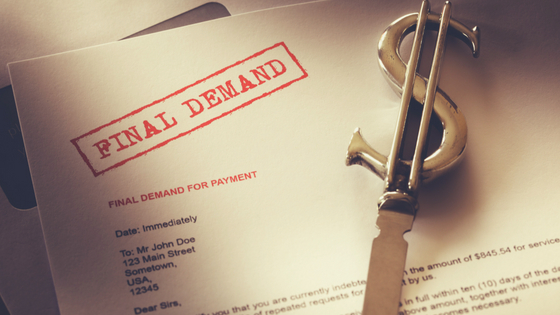

A party can run into problems collecting what they’re owed both before and after litigation. If the reader does not properly secure his interest prior to filing suit, he risks not being able to fully recover his damages. If the reader obtains a judgment against a party, but fails to timely execute on the judgment, he may lose his right to recovery forever. Below are some common issues that occur when collecting what you’re owed goes wrong.
Pre-Suit Collections
The proper way for a party to protect himself when engaging in business transactions, is to secure himself as much as possible at the very beginning of the transaction. Without such protections in place, the reader risks never being able to fully recover his damages.
For instance, if the reader enters into a business transaction by means of a contract, and the contract does not include clear payment terms (think, amounts due, and when they are payable), he may almost certainly count on not recovering what he thinks he is owed. Without clearly stating these terms, the parties may have different expectations, which will ultimately result in very expensive and difficult to prove he-said she-said litigation.
The reader would also be wise to include terms in the contract that allow for the collection of interest, attorney fees, and costs of collection. If these terms are not included, and a breach of the contract occurs, the reader may not be allowed to recover the costs he undertakes to recover the damages the breach caused. These terms may also be a strong incentive to preventing a breach from occurring.
The reader must also consider demanding proper security from the other party to the contract. A secured transaction ensures that the reader will certainly be able to recover his damages up to the value of the security he holds. If there is no security held, the reader will be forced to engage in settlement negotiations, or potentially litigation, in order to recover his damages.
Lastly, if the reader is the victim of a breach of contract, and attempts to collect without following certain laws, he may not only limit his own recovery for damages, but could also end up owing the breaching party for violating the laws. Not understanding the laws on collecting from individuals and entities may have very costly results for the reader.
Post-Judgment Collections
If the reader has engaged in litigation, and won a judgment against the Debtor, collecting may still prove to be a challenge.
If the reader happens to have a judgment from a state other than Texas, he may not collect on it until he files suit to domesticate it, thereby making it a Texas judgment. It is important to consider where the debtor’s assets are located before beginning collection procedures.
Once a judgment is won, the creditor must file a writ of execution within ten years of the signing of the judgment. If the creditor waits too long to collect, the judgment may be considered dead, and may not be revived.
A creditor can collect on a judgment in Texas in one of two ways: by writ of execution or writ of garnishment. A writ of execution can take an extensive amount of time and can also be very costly. If the creditor knows where the debtor banks, the creditor may save time and money by garnishing the debtor’s account.
Another issue may occur if the reader does not perform a proper asset search. He may find that there is nothing to collect. It is important to consider early on whether or not the debtor has exempt property that the creditor can recover, should he win the judgment. Otherwise, the reader is merely the winner of a very expensive piece of paper.
The reader should also be wary of any judgments won against individuals. Texas has several laws that protect an individual’s property rights against creditors, which means much of an individual’s property is exempt.
The Cromeens Law Firm has extensive collections experience. If you require legal assistance, schedule a consultation and we would be happy to help you.
Karalynn Cromeens is the Owner and Managing Partner of The Cromeens Law Firm, PLLC, with over 17 years of experience in construction, real estate, and business law. A published author and passionate advocate for contractors, she has dedicated her career to protecting the businesses her clients have built. Karalynn is on a mission to educate subcontractors on their legal rights, which inspired her books Quit Getting Screwed and Quit Getting Stiffed, as well as her podcast and The Subcontractor Institute.

